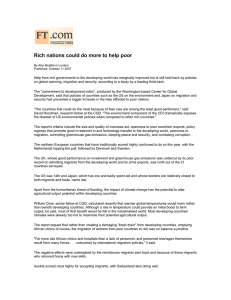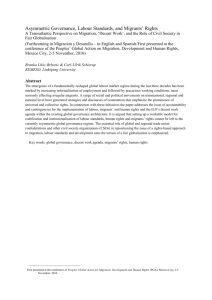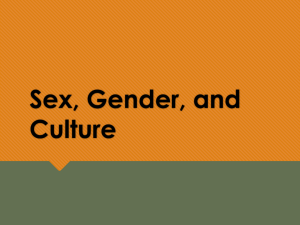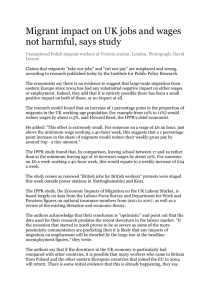Making migration work: an eight
advertisement
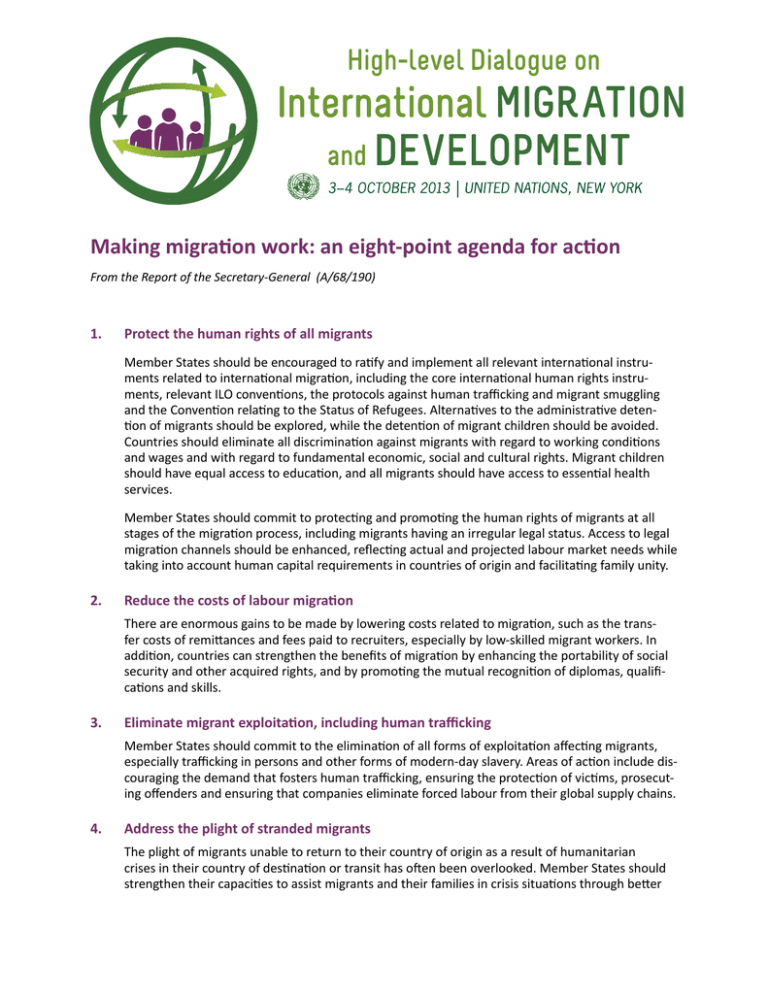
Making migration work: an eight-point agenda for action From the Report of the Secretary-General (A/68/190) 1. Protect the human rights of all migrants Member States should be encouraged to ratify and implement all relevant international instruments related to international migration, including the core international human rights instruments, relevant ILO conventions, the protocols against human trafficking and migrant smuggling and the Convention relating to the Status of Refugees. Alternatives to the administrative detention of migrants should be explored, while the detention of migrant children should be avoided. Countries should eliminate all discrimination against migrants with regard to working conditions and wages and with regard to fundamental economic, social and cultural rights. Migrant children should have equal access to education, and all migrants should have access to essential health services. Member States should commit to protecting and promoting the human rights of migrants at all stages of the migration process, including migrants having an irregular legal status. Access to legal migration channels should be enhanced, reflecting actual and projected labour market needs while taking into account human capital requirements in countries of origin and facilitating family unity. 2. Reduce the costs of labour migration There are enormous gains to be made by lowering costs related to migration, such as the transfer costs of remittances and fees paid to recruiters, especially by low-skilled migrant workers. In addition, countries can strengthen the benefits of migration by enhancing the portability of social security and other acquired rights, and by promoting the mutual recognition of diplomas, qualifications and skills. 3. Eliminate migrant exploitation, including human trafficking Member States should commit to the elimination of all forms of exploitation affecting migrants, especially trafficking in persons and other forms of modern-day slavery. Areas of action include discouraging the demand that fosters human trafficking, ensuring the protection of victims, prosecuting offenders and ensuring that companies eliminate forced labour from their global supply chains. 4. Address the plight of stranded migrants The plight of migrants unable to return to their country of origin as a result of humanitarian crises in their country of destination or transit has often been overlooked. Member States should strengthen their capacities to assist migrants and their families in crisis situations through better preparedness, expanded consular assistance and assisted voluntary evacuation, return and reintegration. Initiatives to create a framework for action to assist stranded migrants, bringing together Member States, international organizations, civil society and the private sector, should be supported. 5. Improve public perceptions of migrants There is a need to combat discrimination, xenophobia and intolerance against migrants and their families by creating greater public awareness about the situations migrants experience and the contributions they make to countries of origin and destination. Such efforts could be promoted through a partnership of the private sector, labour unions, the media, educational institutions and migrants themselves, based on the latest available evidence and highlighting the rights and responsibilities of both migrants and non-migrants. 6. Integrate migration into the development agenda Migration is a test of relevance for the development debate and of fair and effective governance, demanding coordinated action not only among States but at all levels of government. Member States should mainstream migration into national development plans, poverty reduction strategies and relevant sectoral policies and programmes. The international community should define a common set of targets and indicators to monitor the implementation of measures aimed at enhancing the benefits and addressing the challenges of international migration, for consideration in the framework of the post-2015 development agenda. The preceding six action points can only be achieved by strengthening the evidence base, building national capacities and enhancing cooperation and partnerships. 7. Strengthen the migration evidence base Member States should promote evidence-based policymaking and invest in data collection, research and capacity development with respect to migration and its impacts on individuals, communities and societies. The international community should create a dedicated capacity-building initiative to assist countries in improving the collection and use of migration data. The effort should include population censuses and administrative data sources as well as dedicated surveys for assessing the impacts of migration on social and economic development. The use of measurable targets and indicators for monitoring the protection of migrants and violations of their rights should be promoted. 8. Enhance migration partnerships and cooperation No country can manage international migration alone. Stakeholders have developed many ideas for how governments, the private sector and civil society can build partnerships relating to mobility policies that reduce discrimination against migrants and protect their rights; lower the human, social and economic costs of migration; expand opportunities for migrants to invest their earnings more productively and share their knowledge; and enlist migrants and diaspora organizations in enhancing development in their communities of origin and destination. Cooperation and dialogue on migration involving the United Nations, IOM and regional economic communities should be strengthened. The Global Forum on Migration and Development and regional consultative processes can be a useful complement to those formal intergovernmental mechanisms.
